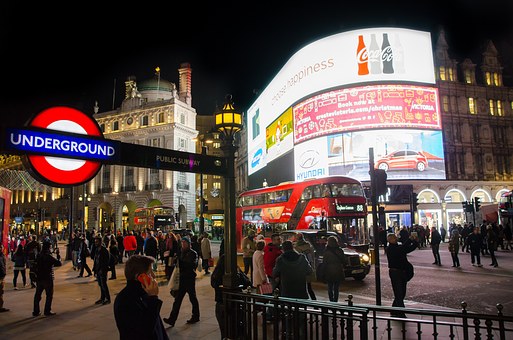Last week, Vodafone informed that it is going to start its “next-generation” of “5G mobile networks” testing, which will be carried out in ten largest cities of Britain in 2018 itself, while the plan is to make the network functional by next year in some of “dense urban” markets.
However, the management of Vodafone Group’s global operators have shown no sign of urgency to “roll out 5G”, as the potential increases tenfold with the offered “mobile broadband data speeds”. It would be a way to introduce “wring greater efficiencies out of network choke points initially”.
Vodafone UK is the countries “third largest mobile operator”, reports Reuters. The company is now laying out the “groundwork for 5G services” alongside the existent 4G network service, which spread across forty locations around “Birmingham, Bristol, Cardiff, Glasgow, Liverpool, London and Manchester”.
The plan is to tap the “highly trafficked urban” like offices, hospitals, popular “holiday locations, factories or sports complexes, informed a company spokesperson. In fact, EE, a “rival mobile operator” and a BT Group unit, has earlier reported of switching to “UK’s first 5G trial network in East London in October”, while Vodafone’s trials will begin sometimes “between October and December of this year”.
Vodafone has recently undertaken upgrade work for its 4G network across Europe, while it also holds a “strong position in licensed radio airwaves”. These factors contribute to making the company eligible for meeting future network traffic demand. While Reuters added:
“The company is waiting until 5G-ready phones and other devices start to become available in the 2020 timeframe before it considers fuller 5G deployments. Vodafone has forecast that 5G is unlikely to be adopted by 50 percent of phone users before the middle of the next decade, or around seven years out”.
References:
reuters.com
However, the management of Vodafone Group’s global operators have shown no sign of urgency to “roll out 5G”, as the potential increases tenfold with the offered “mobile broadband data speeds”. It would be a way to introduce “wring greater efficiencies out of network choke points initially”.
Vodafone UK is the countries “third largest mobile operator”, reports Reuters. The company is now laying out the “groundwork for 5G services” alongside the existent 4G network service, which spread across forty locations around “Birmingham, Bristol, Cardiff, Glasgow, Liverpool, London and Manchester”.
The plan is to tap the “highly trafficked urban” like offices, hospitals, popular “holiday locations, factories or sports complexes, informed a company spokesperson. In fact, EE, a “rival mobile operator” and a BT Group unit, has earlier reported of switching to “UK’s first 5G trial network in East London in October”, while Vodafone’s trials will begin sometimes “between October and December of this year”.
Vodafone has recently undertaken upgrade work for its 4G network across Europe, while it also holds a “strong position in licensed radio airwaves”. These factors contribute to making the company eligible for meeting future network traffic demand. While Reuters added:
“The company is waiting until 5G-ready phones and other devices start to become available in the 2020 timeframe before it considers fuller 5G deployments. Vodafone has forecast that 5G is unlikely to be adopted by 50 percent of phone users before the middle of the next decade, or around seven years out”.
References:
reuters.com






